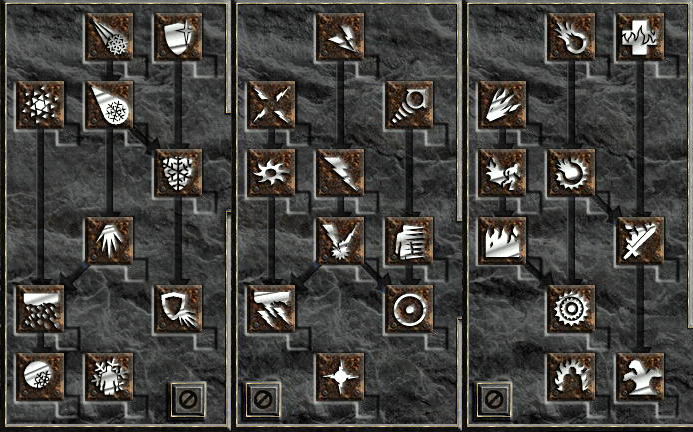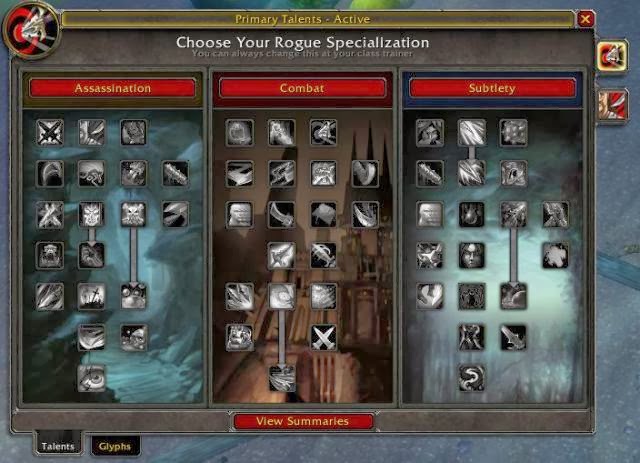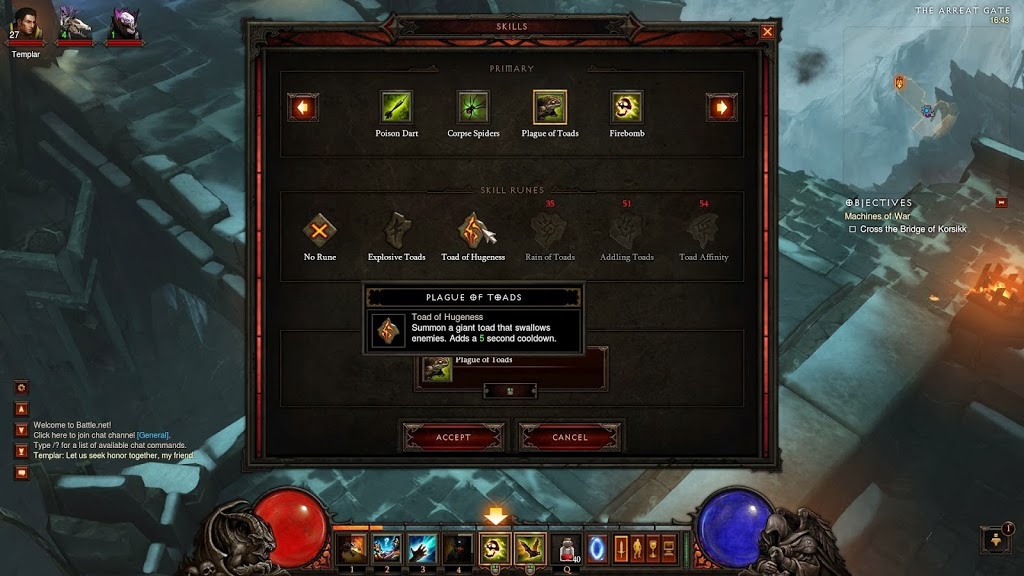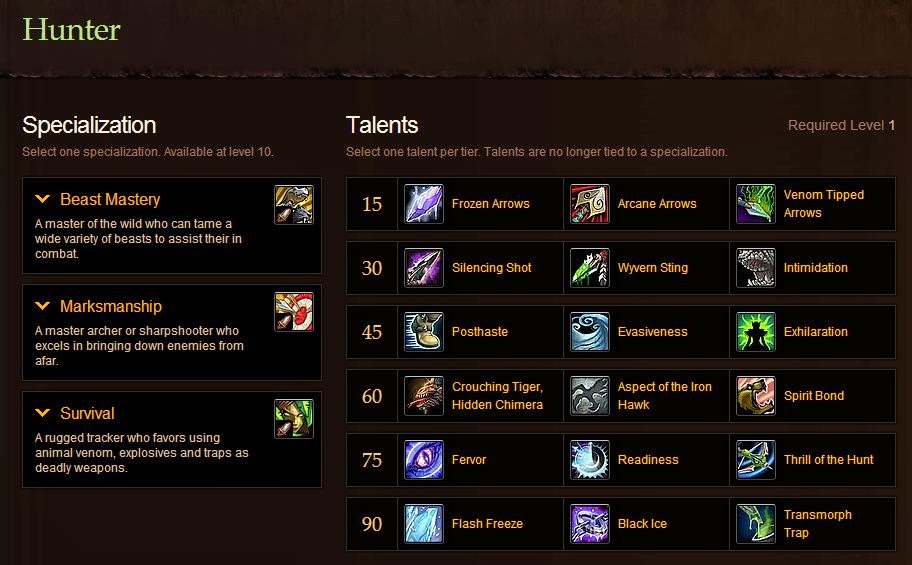After spending some time with Diablo III, I was reminded of maybe the most fundamental change between D2 and D3, and in “old” Bizzard and “new” Blizzard. Most of you are probably aware of the skill trees in Diablo 2. Some of you may have played World of Warcraft. Both had skill trees that looked like a flow chart:
 |
| A Diablo II skill tree. |
 |
| An “old” WoW talent tree. |
Both operated on the idea that at various experience levels you gained points to spend in the trees. These points either improved abilities or unlocked new ones. Diablo 3 and the new WoW talent trees both dumped that approach in favor of unlocking core abilities at certain levels, and then providing a small number of choices. In D3 this takes the form of glyphs that alter a given ability. In WoW, the system is a little more convoluted, but at each talent tree level you generally get to choose between three additional abilities or modifications.
 |
| Picking glyphs for a skill in Diablo 3. |
 |
| The “new” talent tree in WoW. |
Another major change in the system was that in the old point-based system respeccing your skills was either impossible or incurred a fair amount of expense. D3 did away with this, allowing you to swap skills and glyphs any time you are not in combat. WoW has slowly made it easier and easier to change you spec, in both the old and new systems.
I think this system works well in Diablo, but feels a bit hollow. This system was one of the key factors that led me to stop playing WoW altogether. The reason is that in both games, a lot of the urge to play is based on investment in your character. Most RPGs and MMOs work this way. Conversely, shooters have little need for this. In a game where you respawn frequently and death is a common feature, investment comes from how enjoyable the mechanics of the game are.
This change in how players customize their characters leads to a hollow experience, at least for me. Instead of thinking and tweaking and theorycrafting my characters, I get a few choices which can be quickly swapped out until I find the most effective method for dealing the most damage. Instead of taking pride in being a Marksmanship or Beast Mastery Hunter, I was left with a few clicks to make and alter. My investment in balancing my skills and developing a strategies based around my strengths and weaknesses went away.
An example of this change: In Burning Crusade era WoW, I gained a small amount of notoriety on my server as a hunter who could solo just about anything, an occasionally people would come watch me try out some new strategy to deal with boss level creatures outside Illidan’s Temple or tag along to watch me take out Gruul by myself. It was fun, it fostered community, and it really gave me a reason to inhabit the shoes of Grimmash, Orc Hunter. You could even figure out a lot about a character based on the armor set they chose. Seeing a player wearing a particular set of armor told you a lot about how they fought, what talents they likely had, and maybe even about their personality, as certain play styles often drew particular types of people.
Now, with such customization gone, I have lost most of the investment in Grimmash, Orc Hunter. All that maters is speccing the right way for the fight at hand, and hot-swapping out skills based on the dungeon. This is even more pronounced in Diablo 3, where I have never even considered what the personality of Kul Turas the barbarian. In Diablo 2, you had no choice to change skills once assigned, so your build was often very idiosyncratic and personal. Each character was a significant investment.
From a gaming philosophy standpoint, this poses a question. To set that question up, it is often assumed that developers must make a choice between complex skill systems that satisfy hardcore players, or simple skill systems that foster a broader casual appeal. The question becomes: Is this supposed balance real, or a figment of developers’ imagination? Is the sales and marketing department forcing a false dichotomy on developers?
I hope the answer is that this is a false dichotomy, but as many marquee games seem to only be willing to try the simple approach, we may be passing into an era of gaming where it will be harder to find rewarding skill systems in the name of casual sales.
